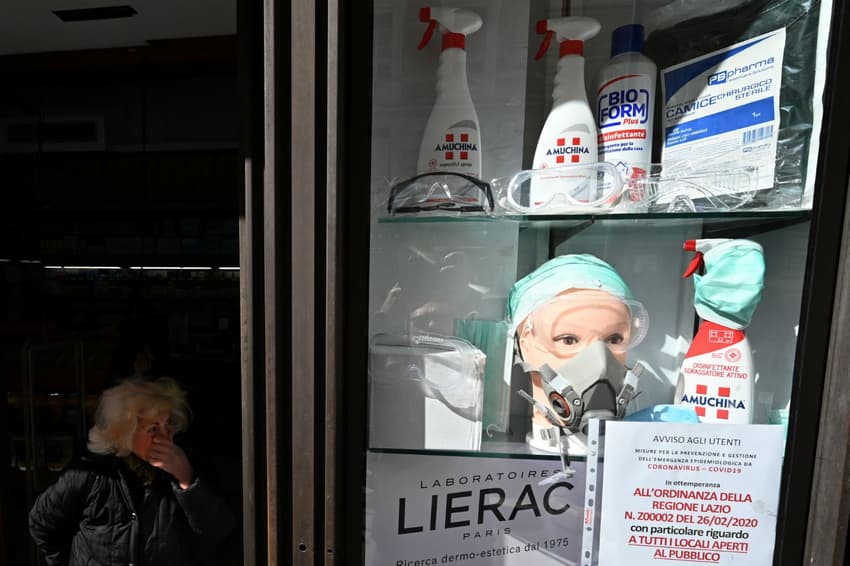Mask hysteria: Germany denies export ban despite blocking Swiss-bound medical supplies

German Chancellor Angela Merkel on Wednesday denied putting in place an export ban on medical supplies, despite a Swiss-bound truck being stopped by customs officials. The Swiss government has however said it is prepared and has a large stock of protective equipment.
As reported by The Local Switzerland on Monday, March 9th, a truck containing approximately 240,000 protective masks was stopped by German customs before it could cross the border into Switzerland.
There have been widespread media reports that Germany, along with other European countries such as France, have put in place restrictions on the export of medical supplies.
READ ALSO: Germany bans exports of gloves and masks over coronavirus
German Chancellor Angela Merkel has however denied this, saying "there is no export ban. We just want to make sure the medical materials are in the right hands".
On Wednesday, another shipment - this time of surgical gloves which had been produced in China but were destined for Switzerland - was stopped in Germany.
As reported in the Tages Anzeiger, the Swiss Economics Department said it was one of many shipments that had been detained in Germany. Another shipment was detained on Wednesday, this time from Italy.
The situation is particularly severe for Switzerland as the country, unlike neighbours France and Germany, produces very little protective gear.
Despite the dispute, the Swiss government has indicated that it has a significant stockpile of medical equipment - including more than one mask for every Swiss resident.
Avoiding 'mask hysteria'
Health officials have frequently told the general public that healthy people should not wear masks and to refrain from purchasing them as they make it more difficult for sick people and medical professionals to access them.
According to the WHO, around 80 percent of people who contract the new coronavirus recover without needing special treatment.
Around one out of every six people who gets COVID-19 becomes seriously ill and develops difficulty breathing.
Some 3.4 percent of cases are fatal, according to the latest WHO figures. Older people and those with underlying medical problems like high blood pressure, heart problems or diabetes, are more likely to develop serious illness.
Comments
See Also
As reported by The Local Switzerland on Monday, March 9th, a truck containing approximately 240,000 protective masks was stopped by German customs before it could cross the border into Switzerland.
There have been widespread media reports that Germany, along with other European countries such as France, have put in place restrictions on the export of medical supplies.
READ ALSO: Germany bans exports of gloves and masks over coronavirus
German Chancellor Angela Merkel has however denied this, saying "there is no export ban. We just want to make sure the medical materials are in the right hands".
On Wednesday, another shipment - this time of surgical gloves which had been produced in China but were destined for Switzerland - was stopped in Germany.
As reported in the Tages Anzeiger, the Swiss Economics Department said it was one of many shipments that had been detained in Germany. Another shipment was detained on Wednesday, this time from Italy.
The situation is particularly severe for Switzerland as the country, unlike neighbours France and Germany, produces very little protective gear.
Avoiding 'mask hysteria'
Health officials have frequently told the general public that healthy people should not wear masks and to refrain from purchasing them as they make it more difficult for sick people and medical professionals to access them.
According to the WHO, around 80 percent of people who contract the new coronavirus recover without needing special treatment.
Around one out of every six people who gets COVID-19 becomes seriously ill and develops difficulty breathing.
Some 3.4 percent of cases are fatal, according to the latest WHO figures. Older people and those with underlying medical problems like high blood pressure, heart problems or diabetes, are more likely to develop serious illness.
Join the conversation in our comments section below. Share your own views and experience and if you have a question or suggestion for our journalists then email us at [email protected].
Please keep comments civil, constructive and on topic – and make sure to read our terms of use before getting involved.
Please log in here to leave a comment.